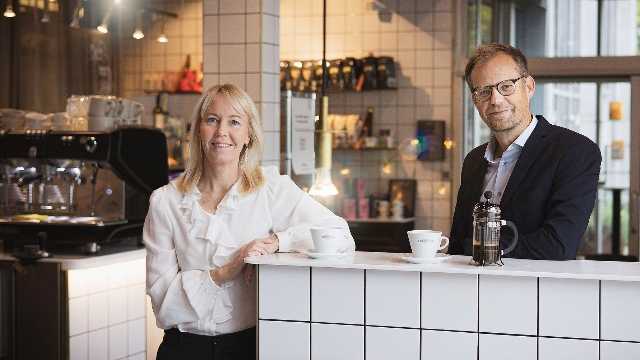KARLSTAD, Sweden – The world of Löfbergs revolves around coffee. The great taste of course, but also the genuine interest and the knowledge that the company has built since 1906. But that is not worth anything if we do not take care of each other and our planet. Which is why sustainability is and always has been important to Löfbergs. It is a part of the company DNA and is included in everything they do and in every decision they make. It enables Löfbergs to be the first choice for customers and consumers.
Löfbergs new sustainability report includes the period from July 2022 to December 2023, a time when it has happened a lot for us and the world around us.
Organisationally, the company has clarified the sustainability function and that it is central to their business and product development. Löfbergs has been first with new sustainable solutions many times, and they will continue to be. Which is why their sustainability work is an important part of their management and governance.
Sustainability is something that the company wins business with, and, in combination with other efforts, it contributes to their success. The growth on Löfbergs core markets is good, not least in Sweden, where they have reclaimed the position as market leader. They are making efforts to keep growing, for example through heavy investments to strengthen their brands.
Löfbergs continues to take new steps in the field of sustainability, which feels more important than ever. Increased traceability and transparency are two keywords when the company now combines more and new methods to create better conditions for the environment and even more coffee farmers.
Their transition to fossil-free sea transports is another positive measure. In a time where different forces around the world question the pace of the sustainability work and point at others to do something, it is crucial that there are those who want, who dare to act, and who take steps forward. For the brand, it is about taking responsibility, showing leadership, and living the vision.
At the time of writing, it has been two years since Russia invaded Ukraine, and in connection with that, Löfbergs immediately stopped all sales to Russia and Belarus. Wars and conflicts have broken out in other areas since then, which have affected the company and their supply chain in different ways.
The financial situation, with inflation and a significant increase in costs, also creates an insecurity. For Löfbergs and the world around them. Many customers and consumers are having a hard time, and even if their expenses soar, Löfbergs has taken responsibility be adding extra focus on internal efficiency to alleviate the consequences and be able to continue to offer affordable products.
Climate change is the greatest challenge of their time and affects the coffee industry to a great extent, most of all in the producing countries. Higher temperatures and extreme weather phenomena make it more challenging than ever to farm coffee. This places high demands on many people, us included.
Löfbergs address this challenge in many different ways, for example with the development projects that improve the opportunities and the living conditions for small-scale coffee farmers. These projects are carried out together with others within the framework of International Coffee Partners.
New legislation in the field of sustainability is something else that affects us and many others ahead.
The EU Deforestation Regulation (EUDR) and the Corporate Sustainability Reporting Directive (CSRD) are two examples. Löfbergs welcomes the new rules and regulations, but also realises that they involve a number of challenges.
The laws are unclear in some cases, and the forward planning is short. Löfbergs would have wanted the politicians to have a better dialogue with the trade and industry.
Otherwise, the risk is that the companies need to use an unnecessary amount of resources on understanding, administrating, and reporting, which results in a shrinkage of the playing field for innovation and development. That does not benefit anyone.


















